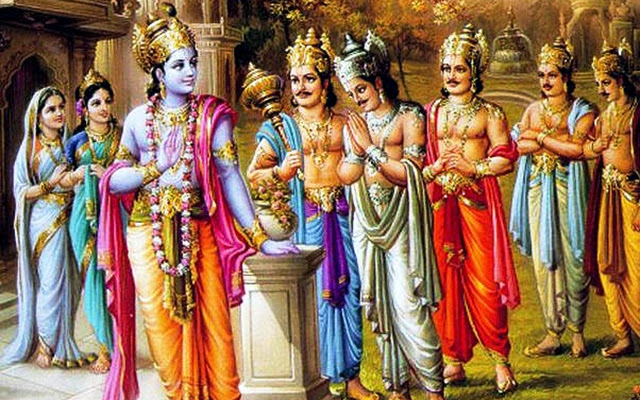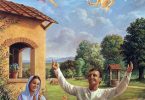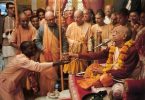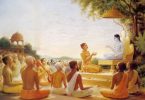Question: Prabhupada mentions in Srimad Bhagavatam purport SB 1.13.3-4 that Nakul and Sahadev were begotten by Pandu himself from Madri:
“Thus, by dint of the mantra awarded by Durvasa Muni she called for Dharmaraja, and thus Yudhisthira was born. She called for the demigod Vayu (air), and thus Bhima was born. She called for Indra, the king of heaven, and thus Arjuna was born. The other two sons, namely Nakula and Sahadeva, were begotten by Pandu himself in the womb of Madri.
However, in Mahabharata, it is mentioned that all the 5 sons of Pandu were born by power of mantra. (Source: Mahabharata – Retold by Krsna Dharma dasa: 1.2:Pandu Cursed and Blessed)
“Madri thought carefully. Most probably Kunti would allow her to use the mantra only once. If she summoned the inseparable twin Asvini gods, she would get two sons at once. Even as she thought of the two gods they appeared before her, aglow with celestial splendor. Bashfully, she asked that they unite with her to conceive children and they immediately agreed. They begot upon Madri two boys of incomparable beauty who were named Nakula and Sahadeva. Upon their birth, the divine voice said, “These virtuous and accomplished sons will transcend in energy and beauty even their celestial fathers.”
How do we understand this difference between both of them?
Answer by Romapada Swami: All 5 brothers were considered sons of Pandu, although they were all born from devas via the assistance of Durvasa’s mantra. This understanding is confirmed in the text of SB 9.22.27-28, where the following is mentioned.
“Pandu was restrained from sexual life because of having been cursed by a sage, and therefore his three sons Yudhisthira, Bhima and Arjuna were begotten through the womb of his wife, Kunti, by Dharmaraja, by the demigod controlling the wind, and by the demigod controlling the rain. Pandu’s second wife, Madri, gave birth to Nakula and Sahadeva, who were begotten by the two Asvini-kumaras. The five brothers, headed by Yudhisthira, begot five sons through the womb of Draupadi. These five sons were your uncles.”






